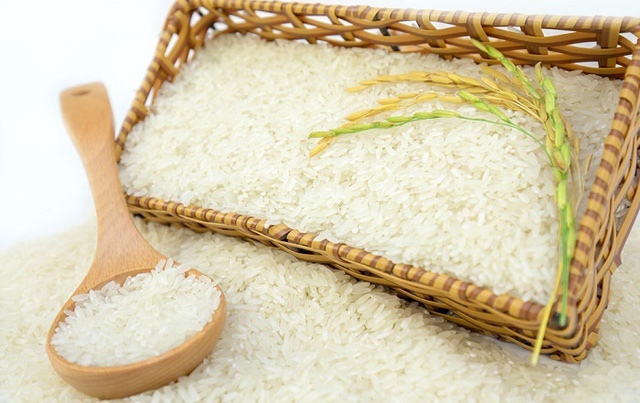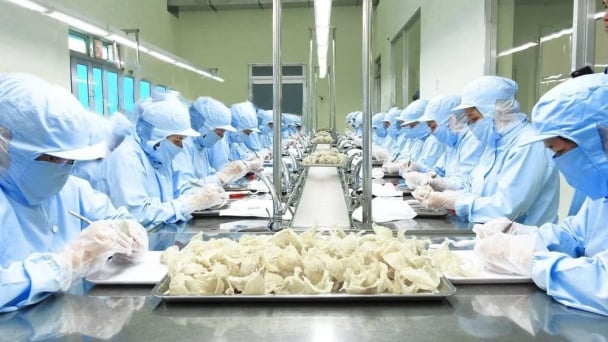May 16, 2025 | 10:32 GMT +7
May 16, 2025 | 10:32 GMT +7
Hotline: 0913.378.918
May 16, 2025 | 10:32 GMT +7
Hotline: 0913.378.918

Rice exports to the EU increased by nearly four times in quantity in the first two months of the year. Photo: TL.
According to Ministry of Industry and Trade, over the first two months of 2022, Vietnam exported more than 15,500 tons of rice to the EU market, earning $11.7 million, up nearly four times in quantity and 4.3 times in value over the same period in 2021.
In the EU bloc, Italy has risen to become the leading market for rice imported from Vietnam, up 26 times over the same period. In addition, there are a number of other key markets such as Germany, France, the Netherlands…
While the average rice export price of the whole country decreased by 12.1% in the first two months of the year to $469/ton, Vietnam's rice export price to the EU still recorded an increase of 9% to $755/ton. The price of Vietnamese rice exported to the EU market is higher than the national average due to the rice exported to this market consisting mainly of fragrant rice with high value.
Despite the significant increase, the price of Vietnam's rice exported to the EU is still quite competitive compared to other competitors such as Cambodia, Thailand, and India.
The Ministry of Industry and Trade stated that businesses have effectively taken advantage of a number of incentives from the EVFTA Agreement to increase the value of rice export to the EU, especially in the context of the pandemic, the sea freight rates to the EU increased sharply and this market’s rice imports decreased in 2021.
According to European Statistics Office (Eurostat), the EU imports 3-4 million tons of rice per year. In 2021, the EU imported 3.6 million tons of rice, of which 1.6 million tons were traded within the bloc and 2 million tons were imported from countries outside the EU.
However, Vietnam's rice market share in the EU is quite modest, accounting for only 3.1% of the total amount of foreign rice imported into the EU. As a consequence, Vietnam still has a lot of room to increase rice export to this market.
Translated by Hoang Duy

(VAN) Japan's efforts to lower the price of rice through the release of its stockpile may finally be making some progress, albeit at a snail's pace.

(VAN) U.S. tariffs are not only a 'shock', but also an opportunity for Vietnamese businesses to renew their mindset toward comprehensive development.

(VAN) As Bac Giang lychee enters the harvest season, Minister Do Duc Duy expects that the fruit will contribute greatly to agricultural exports due to standardized production and deep processing.

(VAN) Consumers have shown a preference for free-range eggs, but those farming systems are more vulnerable to biosecurity risks like bird flu.
/2025/05/09/5701-1-184335_301.jpg)
(VAN) Vietnam’s eel exports nearly doubled thanks to a mud-free farming model, opening up new prospects while still facing numerous barriers related to international standards.

(VAN) Minister Do Duc Duy warned that if production is not professionalized and supply chains are not transparent, the U.S. market could become a growth bottleneck.

(VAN) Delegating surveillance responsibilities to local authorities is a cost-saving and efficiency-boosting measure that removes a key bottleneck for enterprises, according to Director General Duong Tat Thang.